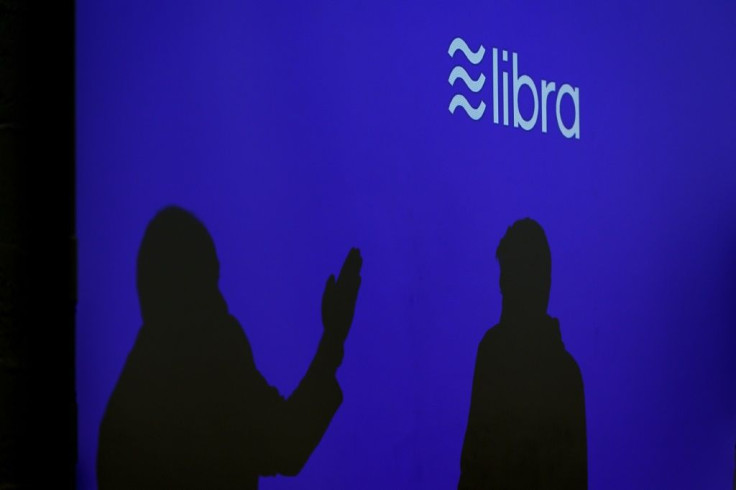4 Reasons Facebook Should Abandon Libra

Earlier this year, Facebook (NASDAQ:FB) assembled a consortium of companies to develop an open-source cryptocurrency called Libra. Facebook doesn't own Libra, but it stated that it would offer Libra as a payment option for its new digital wallet Calibra, then integrate those payments into Messenger and WhatsApp.
Facebook claims that Libra will simplify payment transactions made by roughly 1.7 billion unbanked people worldwide, but critics and regulators argue that the cryptocurrency could be used for money laundering and other illicit purposes. They also believe that Facebook's recent security and privacy debacles made it an unsafe platform for digital payments.
The Libra consortium's members are taking those concerns seriously. Visa, Mastercard, PayPal, Stripe, eBay, and MercadoLibre all recently left the alliance and cast dark clouds over the cryptocurrency's future.
Facebook's Calibra chief David Marcus tweeted that the departures weren't "great news in the short term" but insisted that they were "liberating." Marcus didn't say much more about Libra's future, but I personally think Facebook should abandon this ill-conceived project for four simple reasons.
1. A matter of trust
Prior to Facebook's official Libra announcement, LendEDU surveyed 1,000 adults in May about the social network's potential entrance into the cryptocurrency market. Only 18% stated that they would be interested in buying Facebook's cryptocurrency.
Following Facebook's format announcement in June, a poll of 1,799 American adults by CivicScience found that 77% of respondents still didn't trust Facebook with their personal data. It also found that 40% trusted bitcoin more than Libra, while just 2% trusted Libra more.
Facebook's recent losses of key partners like Visa, Mastercard, PayPal, and eBay also indicate that the companies don't trust the social network's long-term ambitions -- which could turn Messenger and WhatsApp into rival payment platforms.
2. Giving regulators another target
Facebook was already fined $5 billion by the Federal Trade Commission earlier this year for its privacy and security issues. Beyond that, though, U.S. lawmakers from both parties remain adamantly opposed to Libra; France and Germany have pledged to block Libra from entering Europe; and current cryptocurrency regulations are keeping it out of India, a major growth market for digital payments.
Therefore, pushing Libra toward a 2020 launch could attract more regulatory probes and fines -- which would throttle Facebook's bottom-line growth. Marcus recently stated that he still sees "Libra facing greater user acceptance problems than regulatory ones," but it seems neither consumers nor regulators are eager to embrace the cryptocurrency.
3. Another unnecessary expense
Facebook's operating margin plunged from 44% to 27% between the second quarters of 2018 and 2019. Several headwinds caused that decline -- its slowing growth in the U.S. and Canada, its two most profitable markets; its growing dependence on less profitable markets; the costs of expanding its ecosystem into adjacent markets like virtual reality and hardware; and the rising legal costs of its security and privacy problems.
Facebook generated over 98% of its revenues from ads last quarter, yet it keeps plowing cash into speculative side projects like Calibra. Facebook doesn't disclose how much money it's spending on its cryptocurrency efforts, but it's likely a significant amount, which could be better allocated toward its core advertising business.
4. Buying a digital payments company is smarter
Back in July, CNBC's Jim Cramer suggested that Facebook should abandon Libra and buy digital payments company Square (NYSE:SQ) instead. Cramer claimed that Facebook could conceivably buy Square for $70 billion, "blow out Square's payments network worldwide," and turn Square's Cash App into "Facebook Cash."
It was a bold idea, but I argued that Facebook probably wouldn't pay such a lofty premium (over 30 times this year's adjusted revenue) for a company that isn't profitable on a GAAP basis. Facebook would also need to fund part of the deal with either stock or more debt.
However, I think Facebook can still shop around for smaller payment platforms and integrate them into Messenger and WhatsApp. Linking those platforms to credit cards and bank accounts would complement Facebook's e-commerce efforts with minimal regulatory fuss.
The bottom line
Facebook's push into the cryptocurrency market is ambitious, but it fails to read the room. Instead of launching a new digital payments platform, it should be securing its platform, addressing its fake news and privacy issues, and rethinking its speculative projects like VR headsets and smart screens.
Facebook's top Libra partners realize the ship is sinking, so it's time for the tech giant to shelve this project and focus on the more pressing issues instead.
Randi Zuckerberg, a former director of market development and spokeswoman for Facebook and sister to its CEO, Mark Zuckerberg, is a member of The Motley Fool's board of directors. Leo Sun owns shares of Facebook and Square. The Motley Fool owns shares of and recommends Facebook, Mastercard, MercadoLibre, PayPal Holdings, Square, and Visa. The Motley Fool has the following options: short October 2019 $37 calls on eBay, short October 2019 $97 calls on PayPal Holdings, long January 2021 $18 calls on eBay, and short January 2020 $70 puts on Square. The Motley Fool recommends eBay. The Motley Fool has a disclosure policy.
This article originally appeared in The Motley Fool.



















